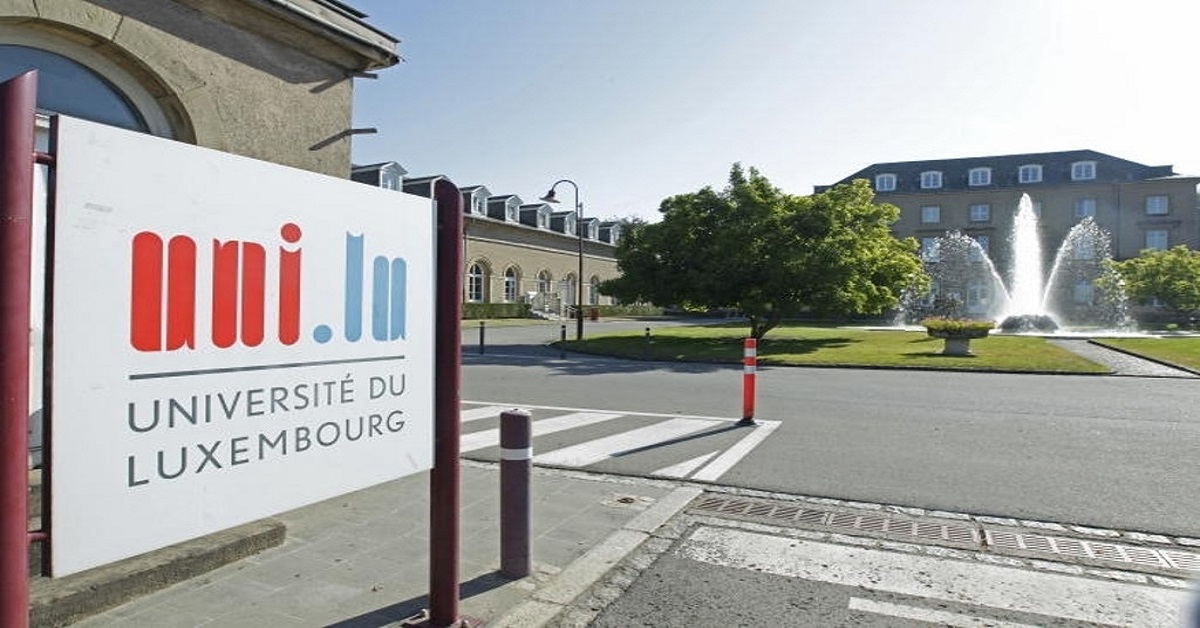The Faculty of Science, Technology and Medicine (FSTM) contributes multidisciplinary expertise in the fields of Mathematics, Physics, Engineering, Computer Science, Life Sciences and Medicine. Through its dual mission of teaching and research, the FSTM seeks to generate and disseminate knowledge and train new generations of responsible citizens, in order to better understand, explain and advance society and environment we live in.
The Geophysics Laboratory (GL) focuses on climate, sea level variability and geodynamics. The primary goals include satellite geodesy of new remote sensing applications and obtaining reliable geodetic measurements of environmental change and assessing the influence of human and natural factors in those changes. To do so, the group has developed a patented differential free-fall gradiometer as part of our activities in scientific metrology, advanced high-accuracy Global Navigation Satellite Systems (GNSS) techniques, provided interpretation of time variable gravity from space and improved the modelling of environmental effects on geodetic observations. In particular, the team investigates changes in the water cycle, the mass changes in the polar ice sheets, the dynamics of the Yellowstone Caldera. Additionally, the team focuses on space-borne GNSS-R for soil moisture and grazing angle GNSS-R for sea-ice studies over sea-ice covered regions.
The University of Luxembourg is seeking to hire a highly motivated and outstanding researcher in the area of space-borne GNSS-R within the Geophysics Laboratory, led by Prof. Olivier Francis.
We’re looking for people driven by excellence, excited about innovation, and looking to make a difference. If this sounds like you, you’ve come to the right place!
Your Role…
GNSS Reflectometry (GNSS-R) is an innovative remote sensing method exploiting signals of GNSS after reflection from the Earth’s surface. The postdoctoral project investigates spaceborne GNSS-R for soil moisture, sea ice classification and altimetry. In this context, the successful candidate will improve and develop new retrievals of Essential Climate Variables (ECV) and other valuable remotely sensed products from a constellation of Earth-observing nanosatellites. The successful candidate will develop algorithms that will allow us to better understand present day soil moisture variability for more accurately modelling the water cycle. In this project, the effects of variable soil moisture on theoretical ground reflections in both perfect conditions as well as under realistic noise will be simulated. The multi-constellation space-borne GNSS-R data will be used then to understand the sensitivity of the hydrological measurements to surface roughness, vegetation, and other parameters such as incidence angle. Additionally, reflected signals at grazing angle will be investigated for sea ice detection and classification. The post-doc researcher will be a member of the Geophysics Laboratory working on the development and implementation of innovative deep learning techniques for the space-borne GNSS-R studies. In summary, the successful candidate is expected to perform the following tasks:
- Disseminating results through scientific publications and conferences
- Contribute to the development of the joint academic/industry partnership between GL and Earth intelligence companies
- Contribute actively to the different GL research projects, either coordinating technical contribution and/or preparing project deliverables
- Preparing new research proposals to attract industrial, national, and European projects
- Providing assistance in the supervision of PhD students
Please direct further questions to Dr. Sajad Tabibi (sajad.tabibi@uni.lu)
What we expect from you…
- A PhD degree in geodesy, geophysics, remote sensing, physics, mathematics, Computer Science, telecommunication engineering with a focus on remote sensing and EO, or similar
- Sound publication track record in relevant international conferences and top journals
- Knowledge of remote sensing techniques preferably radar techniques; ideally experience in analyzing GNSS or remote sensing data
- Strong programming skills in MATLAB, Python or C++.
- Experience of working with industrial projects or public funded research projects related to EO is highly desirable
- Highly committed, excellent team-worker, and strong critical thinking
- Excellent written and verbal communication skills in English
In Short…
- Contract Type: Fixed Term Contract 24 Month (which may be extended up to five years)
- Work Hours: Full Time 40.0 Hours per Week
- Foreseen starting date: October 2022
- Location: Belval
- Job Reference: UOL05092
The yearly gross salary for every Postdoctoral Researcher at the UL is EUR 77.167,08 (full time)
How to apply…
Applications in English should include:
- Curriculum Vitae, including:
- Contact address
- The title and short summary of your PhD thesis and supervisor name
- List of publications
- Cover letter indicating motivations and topics of particular interest to the candidate (approx. 1 page)
- Name, affiliation and contact details of three referees
Early application is highly encouraged, as the applications will be processed upon reception.
Please apply ONLINE formally through the HR system. Applications by email will not be considered.
The University of Luxembourg embraces inclusion and diversity as key values. We are fully committed to removing any discriminatory barrier related to gender, and not only, in recruitment and career progression of our staff.
In return you will get…
- Multilingual and international character. Modern institution with a personal atmosphere. Staff coming from 90 countries. Member of the “University of the Greater Region” (UniGR).
- A modern and dynamic university. High-quality equipment. Close ties to the business world and to the Luxembourg labour market. A unique urban site with excellent infrastructure.
- A partner for society and industry. Cooperation with European institutions, innovative companies, the Financial Centre and with numerous non-academic partners such as ministries, local governments, associations, NGOs …
